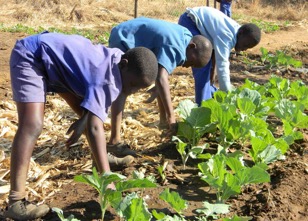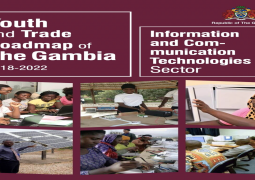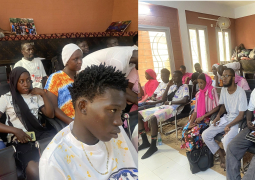
Rural youth are the future of food security.
Yet around the world, few young people see a future for
themselves in agriculture or rural areas.
Rural youth face many hurdles in trying to earn a livelihood. Pressure on arable land is high in many parts of the world, making it difficult to start a farm. Youth often also lack access to credit, and many other productive resources necessary for agriculture.
But even if such hurdles can be overcome, isn’t urban life much cooler?
Perhaps, but not if you cannot make a living there.
Particularly in developing countries, rural youth find themselves in such a bind.
While most of the world’s food is produced by (ageing) smallholder farmers in developing countries, older farmers are less likely to adopt the new technologies needed to sustainably increase agricultural productivity, and ultimately feed the growing world population while protecting the environment.
Hence, we need to re-engage youth in agriculture.
Can this be done?
This publication provides real life examples of how this can be done.
It shows how tailor-made educational programmes (such as the Junior Farmer Field and Life Schools approach) can provide rural youth with the skills and insights needed to engage in farming and adopt environmentally friendly production methods.
With some additional effort, through farmer organizations and improved infrastructure, young farmers can connect to markets to sell their often higher value food.
Facilitating youth’s access to credit helps them become entrepreneurs, improving their self-esteem and the feeling that they can make a living in rural areas.
None of this will come easily.
There are no silver bullets.
However, the large number of successful
initiatives presented in this study offer a sense of hope.
There are workable solutions to overcome the challenges faced by young women and men trying to engage in agriculture and earn a living in rural areas.
Many of the initiatives reported in this study originate with the youth themselves.
These initiatives show that – when there is a supportive environment – youth are able to find innovative ways to create a future for themselves, and also contribute to the societies and communities in which they live.
We hope that this publication will help development practitioners, youth leaders, youth associations, producers’ organizations and policy makers alike by providing insights into possible solutions that can be tailored to their own context.
This study has been a joint undertaking of the Food and Agriculture Organization of the United Nations (FAO), the International Fund for Agricultural Development (IFAD) and the Technical Centre for Agricultural and Rural Cooperation (CTA).
We are most grateful to our staff for their initiative and contributions in putting together this compilation of good practices, and for showing us the lessons we all should draw from those experiences.
Read Other Articles In Youth Forum





